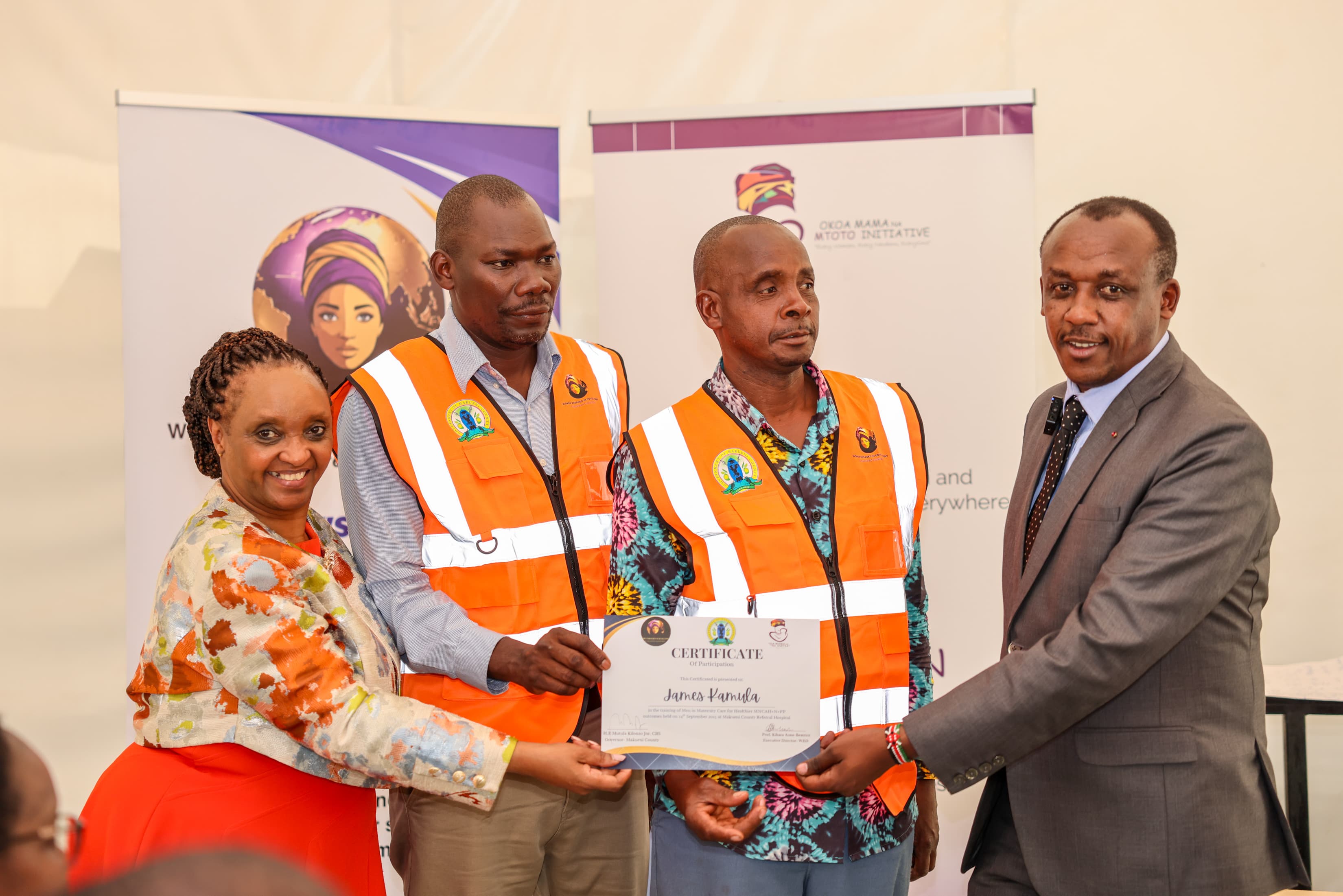 Makueni Governor Mutula Kilonzo Junior (Right) and the Director-General of the Association of Women in Development Prof. Ann Kihara (Left) awards Trained Makueni Boda Bod riders with Certificates. Photo By Governor's Press.
Makueni Governor Mutula Kilonzo Junior (Right) and the Director-General of the Association of Women in Development Prof. Ann Kihara (Left) awards Trained Makueni Boda Bod riders with Certificates. Photo By Governor's Press.
By Andrew Mbuva and Ryan Mumo
Makueni County has launched a groundbreaking program that places bodaboda operators at the center of maternal and child healthcare delivery under the Okoa Mama na Mtoto initiative.
Governor Mutula Kilonzo Junior, joined by Professor Ann Kihara, the Director-General of the Association of Women in Development, presided over the launch at the Mother and Child Hospital in Wote.
The program seeks to leverage the critical role played by motorcycle riders, who are often the first responders in emergencies, especially in rural areas.
According to Governor Kilonzo, research has shown that men often lack awareness about maternal healthcare responsibilities.
“In many researches that have been done, they have shown that men do not understand what should be done after their wives get pregnant or when they are expectant. That duty has been left in the hands of women, and that is negligence,” he said.
He emphasized that by training young bodaboda riders—who are already the main transporters of expectant mothers to clinics—the program will not only improve access but also spread knowledge.
“They now know how many times an expectant mother should go for clinics before giving birth, the correct diet for lactating mothers, and the kind of lifestyle they must embrace. They will also train their colleagues,” added the governor.
One of the biggest challenges, he noted, is transporting community healthcare workers and expectant mothers at night.
“In future, we will have special bodabodas for such services to provide mobile ambulance support,” he revealed.
The initiative aims to reduce maternal deaths related to pregnancy by 30 percent within two years, ensure that at least 80 percent of emergencies are promptly addressed, and officially register at least 40 percent of riders into an emergency health transport network.
Professor Ann Kihara praised the county’s approach, saying it goes beyond transport to address broader issues of maternal and child health.
“We had the first training and you can see I have my fellow bodaboda men here who have trained in continuum care. We want men to be engaged right from before pregnancy, during pregnancy, and after,” she said.
She highlighted the importance of engaging men in addressing teen pregnancies and supporting the empowerment of the girl child.
“We recognize that only 20 percent of maternity care engages men. Through this continuum of care, we hope to achieve better survival of our mothers, babies, and young girls so that they may continue being in school and have planned married pregnancies,” she explained.
Prof. Kihara also commended the wide representation of Makueni’s leadership in the launch, expressing optimism that the trained master trainers would disseminate the knowledge to the grassroots.
With bodaboda operators forming a lifeline for rural families, Makueni’s innovative approach could set a precedent for other counties in ensuring that no mother or child is left behind in the fight against preventable maternal deaths.